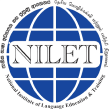Higher Diploma in Primary Teacher Education
Duration
24 Months
Total Crtedits
90 Credits
Education Psychology
Module Objective:
Study of how people learn.
Content
- Exploring the instructional processes
- Studying individual differences in how people learn
- Developing teaching methods to help people learn more effectively
Introduction to early childhood education
Module Objective:
Provides current and future educators with a highly readable, comprehensive overview of the field.
Content
- Building relationships
- Developing physical skills
- Teaching developmentally appropriate practices
Child Growth and Development
Module Objective:
- Exhibit grounding in a child development knowledge base.
- Demonstrate knowledge in building relationships with children, family and community.
- Observe, document, and assess to support young children and families.
Content
Changes in emotions, personality, behaviour, thinking and speech that children develop as they begin to
understand and interact with the world around them.
Philosophy of Education
Module Objective:
Provide students with fundamental career concepts and skills.
Content
- The examination of educational theories.
- The presuppositions present in them.
- The arguments for and against them.
Children’s Emotional & Social Development
Module Objective:
Empower kids to grow self-aware and confident, to manage difficult emotions and impulses, and to embody
empathy.
Content
- Self-Wareness
- Self-Management
- Social Awareness
- Relationship skills
- Responsible decision making
Teacher’s ethics and Professionalism
Module Objective:
Protect the rights of the students, all the students
Content
- Honesty
- Trustworthiness
- Loyalty
- Respect for others
- Adherence to the law
- Doing good and avoiding harm to others
- Accountability
Instructional technology and learning
Module Objective:
Promote a well- integrated development of a person.
Content
Aligning the three major components of instructions: learning objectives, assessments and instructional activities.
- Self-control strategies
- Classroom design techniques
- Teaching to appropriate behaviours
- Accurate and timely consequences
- Student teacher relationships
Pedagogical models and strategies
Module Objective:
To build on previous learning of the students and work on the development of skills and attitudes of the
learners
Content
The study of teaching methods, including the aims of education and the ways in which such goals may be
achieved.
Curriculum development
Module Objective:
Encourage the development of character and personality in students
Content
The interaction and relationships of the planning, content and methods, implementation and evaluation and
reporting of the curriculum development process.
Children with Special Needs
Module Objective:
Ensure that children are safe and cared for, that their social and emotional needs are met and supported, and
that they have the required supports necessary for them to reach their true academic potential.
Content
- Meaning and context of special needs.
- Types and areas of special needs: Visual impairment, mental retardation, hearing.
- Impairment, gifted and talented and others.
- Orphans and vulnerable children.
- Screening procedures for children with special needs.
- Strategies for handling children with special needs.
- Referral services.
- Evaluation and identification.
- Child abuse.
- Teens development.
- Major theories on child development.
Guidance and counseling in School
Module Objective:
To encourage students’ academic, social, emotional and personal development.
Content
- The successful completion of schoolwork.
- The progress of the studies.
- The productivity and effectiveness of education.
Entrepreneurship
Module Objective:
Train the next generation of entrepreneurs.
Content
- Personal Development
- Creativity
- Self-reliance
- Initiative taking
- Action orientation
Language and Literacy for Early Childhood Education
Module Objective:
Supports the ability of your child to communicate, and express and understand feelings
Supports child’s thinking ability and helps them develop and maintain relationships.
Content
The development of the skills used to communicate with others through languages. The ability to read and write
Mathematics for Early Childhood Education
Module Objective:
Help children develop a sense of math around them, to notice and use numbers, and to use math concepts to
explore their world.
Content
- Compare quantities
- Find patterns
- Navigate in space
- Grapple with real problems such as balancing a tall block building or sharing a bowl of crackers
fairly with a playmate
Science and Technology for early childhood education
Module Objective:
Give basic grounding in scientific concepts and thinking. Support the development of other skills and attributes.
Content
- Providing experiences that can stimulate young children’s curiosity and motivate them to become
interested in their environment and in the mechanisms of nature. - Encourage exploration along with their interest in science.
Music, Movement and play for early childhood education
Module Objective:
Helps them express their feelings and emotions, learn to work in groups and develop their self-confidence
and imagination.
Content
- Learn about the benefits of music and movement for children.
- Discover music and movement activities for babies, toddlers and pre-schoolers.
- Uncover the Importance of music and movement in early childhood development.
Assessment and Observation for early childhood education
Module Objective:
To get information about what he knows and what he can do. Observing and documenting a child’s work and
performance over the course of a year allows an educator to accumulate a record of the child’s growth and
development.
Content
- Screening tools
- Diagnostic assessments
- Formative assessments
- Summative assessments
Children’s Art and Creativity
Module Objective:
Help relieve stress and work through things happening in their lives.
Content
- Movement and dance
- Drama and storytelling
- Music
- Visual arts
Family involvement in early childhood education
Module Objective:
Helps extend teaching outside the classroom, creates a more positive experience for children and helps
children perform better when they are in school.
Content
- Attend events
- Visit places
- Do things at home
- Communicate with Educators
Introduction to E-Learning
Module Objective:
Meet the learning style or needs of students.
Content
- Synchronous learning
- Asynchronous learning
Spiritual & Moral Development of young children
Module Objective:
Empower strong connections/relationships between children and their environment.
Help individuals understand the nature of the universe and their place within it, to develop a sense of right
and wrong, and to cultivate qualities such as compassion, empathy, and forgiveness.
Content
- Learn to be aware of and comfortable with qualities such as respect, responsibility, and reverence for
self and others. - Learn to be capable of acknowledging differences between people without feeling fear. They develop
a love for the earth and act to protect it.
Children’s health, nutrition and safety
Module Objective:
Collaborate with parents to improve the health and safety of children.
Content
Safety
- Children’s Well-Being and Early Childhood Education.
- Preventing Injury & Protecting Children’s Safety.
- Creating Safe Indoor Environments.
- Creating Safe Outdoor Environments.
- Caring for Minor Injuries and Preparing for and Managing Emergencies.
- Child Maltreatment
Health
- Promoting Good Health & Wellness
- Prevention of Illness
- Supportive healthcare
- Children with special healthcare needs
- Children’s mental health
Nutrition
- Basic nutrition for children
- Protecting good nutrition and physical wellness
- Providing good nutrition
- Menu planning and food safety
The relationship between teachers, families, communities and culture
Content
- Define parent involvement broadly.
- Develop teachers’ models of practices.
- Emphasize alternative family activities.
- Ensure there are a wide range of options.
- Make the first move in building trust.
- Establish positive relationships.
- Make personal invitations.
- Adjust communication strategies.
- Be aware.
- Provide a first person of contact.
- Use mediator.
- Be honest.
- Base partnership on open dialogue and shared agendas.
- Find out what culturally diverse family’s value.
- Consider culturally diverse families’ beliefs, goals, and interests.
- Avoid giving advice.
- Provide sufficient time for parent-teacher conferences.
- Use interpreters.
- Acknowledge the conversational strengths and resources of each family.
- Use focus groups.
Management and Quality Early Childhood Centres
Module Objective:
To facilitate optimum development of the child’s full potential and lay the foundation for all round
development and lifelong learning.
Content
- Small class sizes and high adult-to-child ratios.
- A language-rich environment.
- Age-appropriate curricula and stimulating materials in a safe physical setting.
- Warm, responsive interactions between staff and children.
Moral education in early childhood education
Module Objective:
Makes children understand how to behave with others, respect the rights of each individual, behave well and
have a sense of tolerance.
Content
- Fairness, affection.
- Caring; Honesty.
- Tolerance; Respect for difference.
- Resilience; perseverance.
Physical Education for Young Children
Module Objective:
Improve fine motor skills including balance, dexterity, and flexibility.
Content
- Body composition.
- Muscular endurance.
- Muscular Strength.
- Cardiovascular endurance.
- Flexibility.
Early Childhood Education curriculum
Module Objective:
Provide children with strategies that help them develop the emotional, social and cognitive skills needed to
become lifelong learners.
Content
- Children’s physical health.
- Well-being and motor development.
- Social and emotional development.
- Approaches to learning.
- Language Development.
- Cognition and general knowledge.
Practical Session
Module Objective:
Providing opportunities to explore, investigate and experiment.
Content
- Create a Caring, Equitable Community of Engaged Learners.
- Establish Reciprocal Relationships with Families.
- Observe, Document, and Assess Children’s Learning and Development.
- Advocate on Behalf of Young Children, Families, and the Early Childhood Profession.


